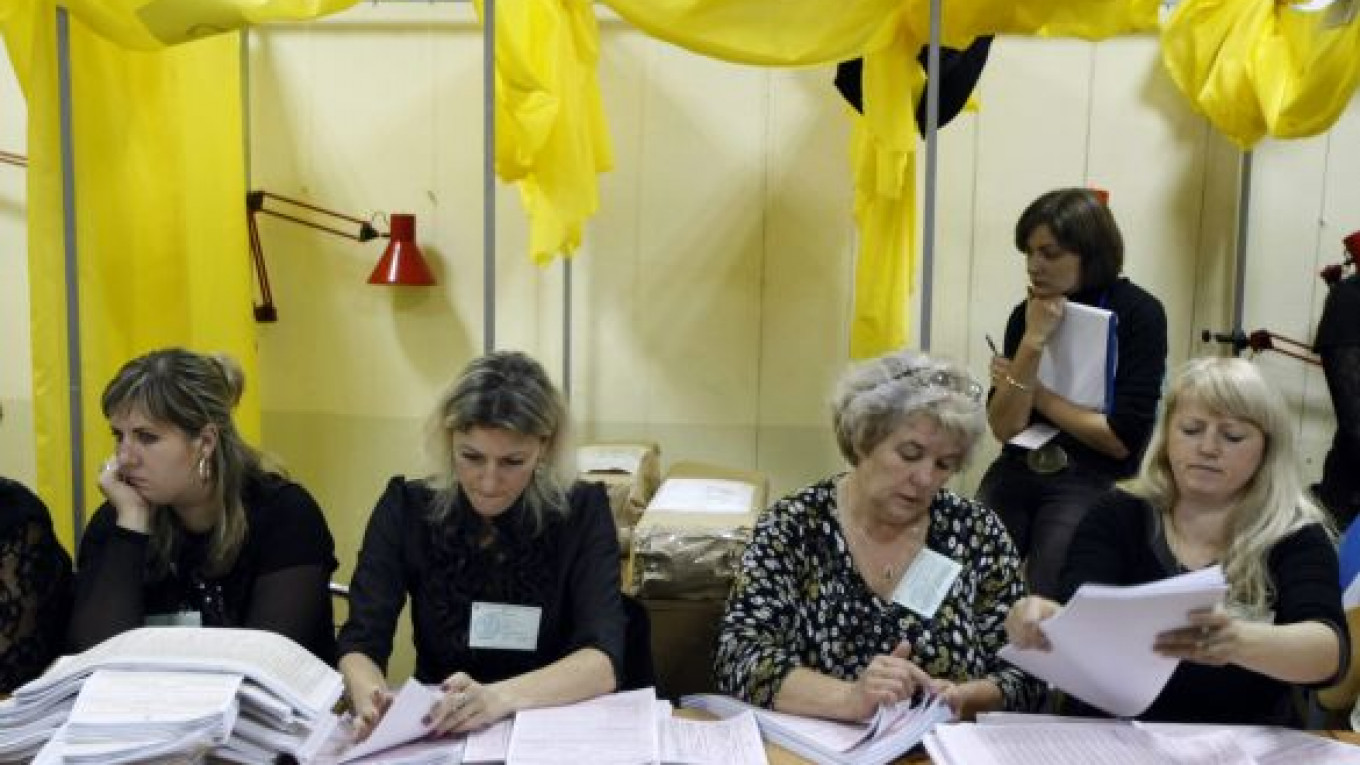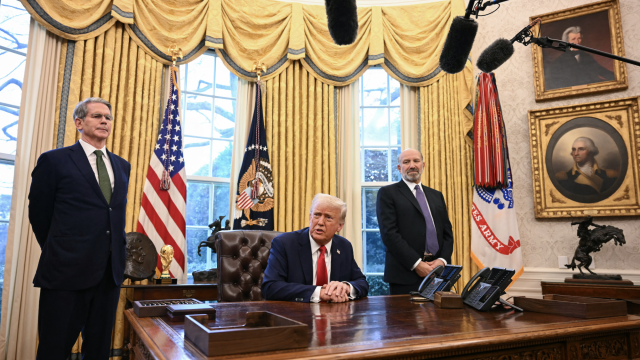KIEV — President Viktor Yanukovych has tightened his grip on Ukraine with local elections in which his Party of the Regions outgunned its rivals, but a low turnout and opposition cries of fraud cast a shadow over his victory.
Reports from across the country supported an exit poll's findings that the Party of the Regions had easily outperformed opposition parties, including that of former Prime Minister Yulia Tymoshenko, in Sunday's election.
The exit poll, conducted by the Ukrainian arm of GfK, an international market research firm, said the Party of the Regions received 36.2 percent of votes in local councils, while Tymoshenko's Fatherland party got 13.1 percent.
The study polled some 44,000 respondents across the country and had a margin of error of 2.5 percentage points.
Tymoshenko herself stayed out of the spotlight Monday.
But her second-in-command, Oleksander Turchynov denounced "the dirtiest and most shameful elections which have ever taken place in the history of independent Ukraine."
Seizing on the unusually low turnout of less than 50 percent, Turchynov said this demonstrated that "the majority of Ukrainians did not want to take part in the farce which the ruling clique thrust upon our state."
Tymoshenko's office said she would not recognize results in three key provinces including the Kiev region because her party was denied representation there.
Though full results will not emerge for several days, a Party of the Regions official, quoted by the web site of Dzerkalo Tyzhnya weekly, expected that the party would be able to form a controlling majority in 23 of the 27 regions in alliance with other parties.
Western governments and monitoring organizations did not deploy full-fledged observing missions in Sunday's vote.
Opora, a Western-funded local election monitoring group that had 1,500 observers in place, concluded that the vote was not democratic. The group said the opposition was not fairly represented in vote-counting bodies, that many candidates had been unlawfully excluded from election lists and that the balloting took place in a general atmosphere of mistrust.
"There were so many violations that we cannot say that it was democratic, fair and open," said Opora spokesman Dmitry Gnap.
Pawel Kowal, a European Parliament lawmaker, expressed concern that election legislation had been changed shortly before the vote. The changes included limiting the opposition's participation in vote-counting and introducing a law that effectively forced Tymoshenko to change her party name to a less recognizable one.
Several other parties, including the nationalist Svoboda and a party headed by one-time presidential contender Arseniy Yatsenyuk, appeared to have picked up some of her lost vote.
The results for mayors in leading cities was not clear, but reports said in Kharkiv — traditionally a pro-Yanukovych city — there was an unusually fierce battle going on between the Regions' candidate and Tymoshenko's.
Kiev remained untouched by campaigning since early elections for the local council took place two years ago, leaving the capital out of cycle with the rest of the country. (Reuters, AP)
A Message from The Moscow Times:
Dear readers,
We are facing unprecedented challenges. Russia's Prosecutor General's Office has designated The Moscow Times as an "undesirable" organization, criminalizing our work and putting our staff at risk of prosecution. This follows our earlier unjust labeling as a "foreign agent."
These actions are direct attempts to silence independent journalism in Russia. The authorities claim our work "discredits the decisions of the Russian leadership." We see things differently: we strive to provide accurate, unbiased reporting on Russia.
We, the journalists of The Moscow Times, refuse to be silenced. But to continue our work, we need your help.
Your support, no matter how small, makes a world of difference. If you can, please support us monthly starting from just $2. It's quick to set up, and every contribution makes a significant impact.
By supporting The Moscow Times, you're defending open, independent journalism in the face of repression. Thank you for standing with us.
Remind me later.






